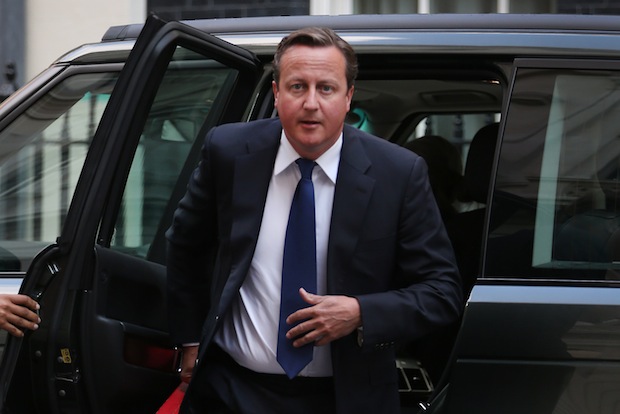David Cameron, Nick Clegg and Ed Miliband this afternoon gave statements on Britain’s response to the use of chemical weapons in Syria. There were important similarities between the statements which are worth examining. Here is what we learned:
1. The action must be legal.
Miliband told the cameras after the meeting that ‘when I saw the Prime Minister this afternoon I said to him that we the Labour party would consider supporting international action, but only on the basis that it was legal’. Meanwhile Clegg and Cameron both insisted that the measures being considered were legal. Clegg said:
‘Any steps we will take will have to be legal. This Government, this Coalition Government, of course is not going to act outside the remit of international law’.
2. The action must be proportionate.
Miliband made clear that there would have to be clear limits to the action, while Cameron and Clegg both used the same words to describe the nature of the action. Cameron it ‘would have to be legal, would have to be proportionate’, while Clegg said only measures ‘which are legal, which are proportionate’ were being considered.
Clegg also said the government was not seeking regime change in Syria:
‘What we’re not considering is regime change, trying to topple the Assad regime, trying the settle the civil war in Syria one way or another. That needs to be settled through a political process.’
3. Labour’s support is not yet confirmed and is conditional on the above points.
Miliband said that Labour’s support would only be ‘on the basis that it was legal, that it was specifically limited to deterring the future use of chemical weapons and that any action contemplated had clear and achievable military goals… We’ll be scrutinising any action that is contemplated on that basis.’ Miliband already risks losing one of his frontbenchers, Diane Abbott, if he decides his party should support the action.
Clearly Cameron and Clegg were keen to reassure on the points, hence their matching language and repeated mentions of the words ‘legal’ and ‘proportionate’.
4. But all three leaders agree that regimes cannot use chemical weapons on their own people with impunity.
Cameron said:
‘No decision has yet been taken, but let’s be clear what is at stake here; almost 100 years ago the whole world came together and said that the use of chemical weapons was morally indefensible and completely wrong, and what we’ve seen in Syria are appalling scenes of death and suffering because of the use of chemical weapons by the Assad regime, and I don’t believe we can let that stand.’
Clegg said:
‘And if we stand idly by we set a very dangerous precedent indeed, where brutal dictators and brutal rulers will feel they can get away with using chemical weapons on a larger and larger scale in the future. These are weapons which were used on a large scale in the First World War and were banned back in the 1920s. So what we’re considering is a serious response to that.’
And Miliband said:
‘I believe that the use of chemical weapons on innocent civilians, killing hundreds of them, is abhorrent and can’t simply be ignored.’
But Cameron explored the idea of the evidence for chemical weapons a little further. He explained that the regime had ‘huge stocks’ of chemical weapons and ‘we know that they have used them on at least 10 occasions prior to this last wise-scale use’. But he added that:
‘Of course I think in Parliament it’s the right place to set out all of the arguments to deal with all of the questions. But I would say this to people; there is never 100% certainty, there’s never one piece or several pieces of intelligence that can give you absolute certainty.’







Comments